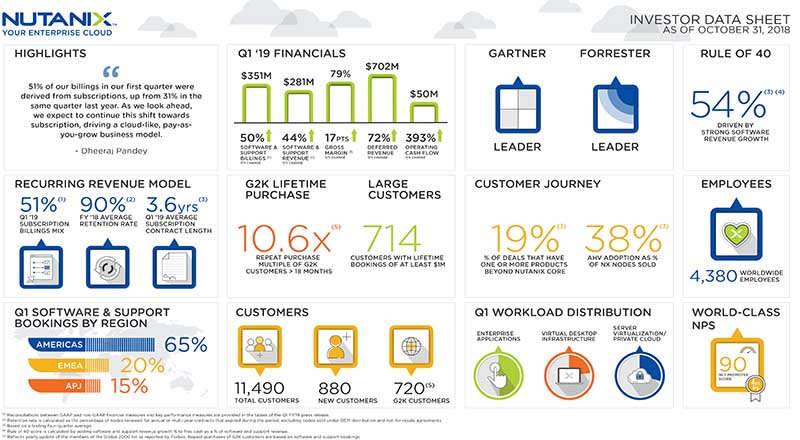Nutanix has announced the healthcare industry findings of its Enterprise Cloud Index Report, measuring healthcare companies’ plans for adopting private, hybrid and public clouds. The report revealed that the healthcare industry is increasingly leaning toward adopting hybrid clouds that combine private and public cloud services, and their respective benefits – with healthcare ranking third in the number of hybrid cloud deployments currently running, by industry. According to respondents, in just two years, healthcare providers’ hybrid cloud deployment will jump from 19% penetration to 37%.
Today, healthcare organisations need to address a variety of critical IT needs, including a need for increased security, protection of sensitive patient data and meeting regulatory compliance. Over 28% of healthcare respondents named security and compliance as their number one decision criterion in choosing where to run workloads. With hackers targeting medical records containing sought-after personal details like patient healthcare and insurance information, hospitals and providers require technology solutions that can handle the movement of sensitive data without risk. And, as healthcare providers also have to meet necessary security and HIPAA compliance for patient data, they seek out a solution that fits those specific needs.
To address ongoing security and compliance concerns, results showed the healthcare industry turning to hybrid cloud for optimum flexibility and the ability to move applications between private and public clouds. More than half of survey respondents from the healthcare industry noted inter-cloud application mobility as “essential,” further demonstrating this need for seamless movement of applications and associated data, networking services, and security policies between different types of clouds.
From a patient and clinician perspective, adopting a cloud model, hybrid or otherwise, also allows for providers to undergo a digital transformation of healthcare delivery. Infrastructure innovations allow hospitals to manage different applications and data types, take advantage of automation and create new service lines such as telehealth or remote monitoring, thus leading to improved patient engagement.
Other key findings of the report include:
Healthcare companies overspend on public cloud: Another motivation for deploying hybrid clouds is likely enterprises’ need to gain control over their IT spend. Organisations that use public cloud spend 26% of their annual IT budget on public cloud, with this percentage set to increase to 35% in two years’ time. The survey demonstrated healthcare companies report being about 40% over budget when it comes to public cloud spend, compared to 35% of cross-industry global companies.
Healthcare public cloud usage outpaces other industries for IoT: The healthcare industry is embracing public clouds at about the same pace as most sectors, reporting a 13% penetration compared to the 12% global average. However, healthcare companies outpace the averages for certain applications, such as ERP/CRM, data analytics, containers, and Internet of Things (IoT).
Hybrid IT skills are scarce in healthcare: While 88% of respondents said that they expect hybrid cloud to positively impact their businesses, hybrid cloud skills are scarce in today’s IT organisations. These skills ranked second in scarcity only to those in artificial intelligence and machine learning.
“India has always looked to provide a premier healthcare system for its citizens. But an ageing population, a rise in chronic disease, increased health costs and a host of other technical and social factors are putting increased pressure on the country’s hospitals and healthcare professionals,” said Neville Vincent, Vice President ANZ, ASEAN and India, Nutanix. “There is no quick cure for these issues but investing in next generation IT infrastructure is the first step in preserving the current quality of care and bringing healthcare to the individual rather than the other way around.”





